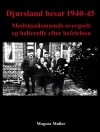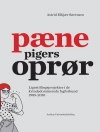Lisbon rising explores the role of a widespread urban social movement in the revolutionary process that accompanied Portugal’s transition from authoritarianism to democracy. It is the first in-depth study of the widest urban movement of the European post-war period, an event that shook the balance of Cold War politics by threatening the possibility of revolution in Western Europe.
Using hitherto unknown sources produced by movement organisations themselves, it challenges long-established views of civil society in Southern Europe as weak, arguing that popular movements had an important and autonomous role in the process that led to democratisation, inviting us to rethink the history and theories of transitions in the region in ways that account for popular agency.
Lisbon rising will be of interest not only to students of twentieth-century European history, but across disciplines to students of democratisation, social movements and citizenship in political science and sociology.
Mục lục
1. Introduction
2. The New State and the transformation of urban citizenship, 1926–1974
3. From rights to action: April to December 1974
4. Building a movement: September 1974 to June 1975
5. The street and the ballot box: June to November 1975
6. Urban social movements and the making of Portuguese democracy
References
Index
Giới thiệu về tác giả
Pedro Ramos Pinto is Lecturer in International Economic History at the University of Cambridge and fellow of Trinity Hall












